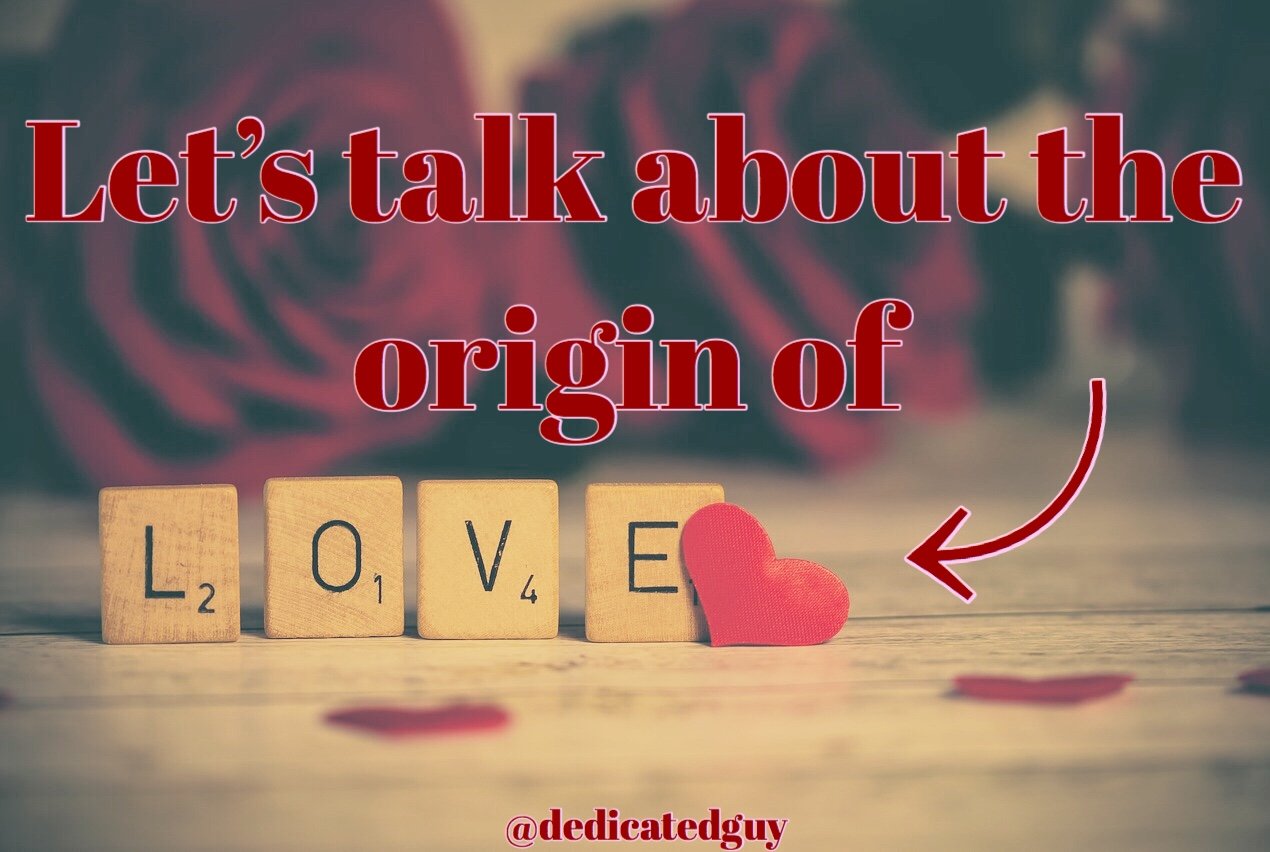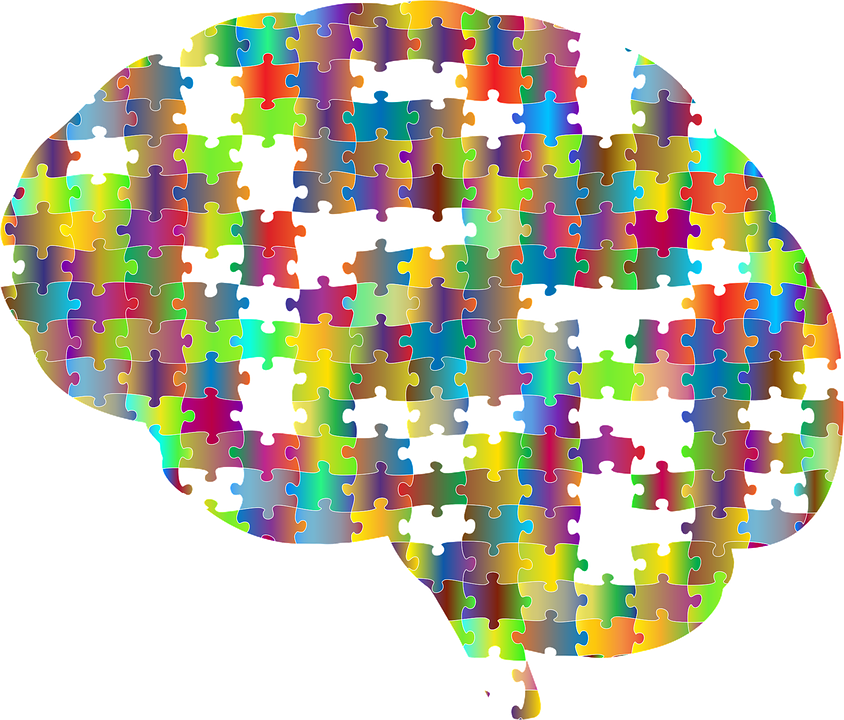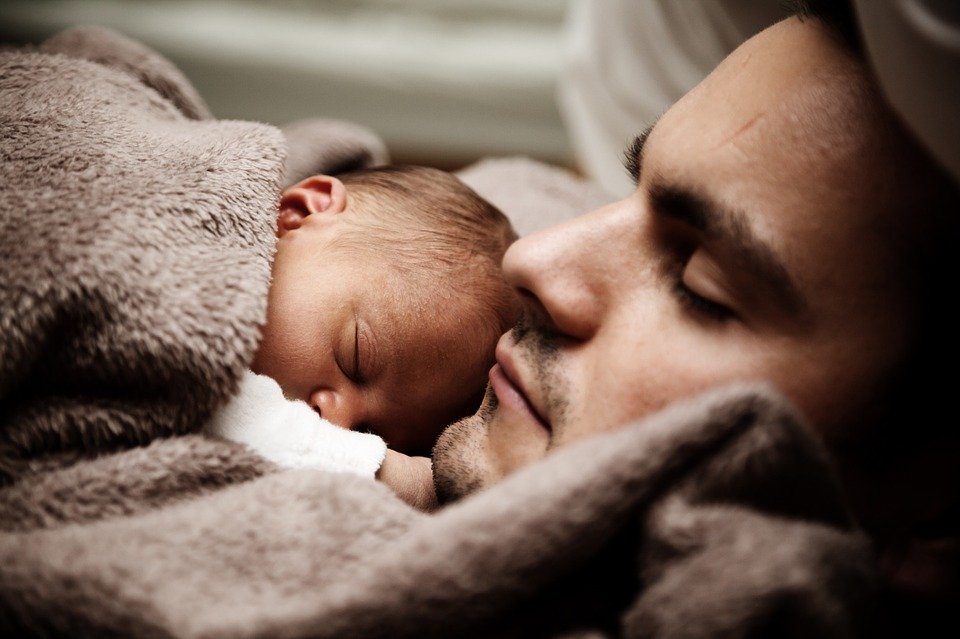
Another chapter in the "Today's lesson" series, in this opportunity we are going to talk about our most powerful feeling, which is Love, and how its origin is related to science.

Without a doubt, one of the most intense feelings of us humans being is what we call "love", a feeling that can be defined in several ways, since in certain situations it is defined as "loving our partner romantically" or "loving a children ", and finally something like "love whatever you like to do".
However, we can say that things like "love whatever you like to do" is a feeling somewhat different from the traditional concept of love, and that would fit better if we instead express this with phrases like "do whatever we like to do", so today I will mainly talk about the love that we feel towards another person, be it "romantic" love towards a partner or "family" love towards children, parents or siblings, among others.
First of all, it is important to understand that although "love" can be seen as something abstract, that does not mean its origin cannot be located, both physiological and historical. Besides it can also be quantified subjectively in various ways (by means of statistics and surveys in relation to a specific definition of love).
That means that love is not something that science is unable to explain.

What are the origins of this feeling?
There is a branch of science called "Evolutionary Psychology" that consists in studying this type of things. This is a branch that tries to explain the origin of the behavior of any species, from an evolutionary perspective, usually asking a question like "what evolutionary advantage was the one that caused the genes necessary for such behavior to spread in a population?".
Evolutionary Psychology proposes that the human brain comprises many functional mechanisms, called psychological adaptations or evolved cognitive mechanisms designed by the process of natural selection. | Source

And that allows us to find a clue to its historical origin in our brains, and its purpose.
It turns out that love and desire activate specific but related areas in the brain. The researchers found that two brain structures in particular, the insula and the striatum, are responsible for tracking the progression from sexual desire to love. The insula is a portion of the cerebral cortex folded deep within an area between the temporal lobe and the frontal lobe, while the striatum is located nearby, inside the forebrain. | Source
Since in this article we are just talking about love, the explanation is simple, and has to do with the preservation of our species (as is generally the case with these subjects)
It happens that the feeling of lovingly attraction towards another human being, similar to the feeling of sexual attraction, is a potent tool to make the species endure the test of time, and I offer you an example below.
Let’s imagine ourselves 90,000 years ago in the past, in the early days of modern humans, and let's focus on the lives of two new families, where each of them have a father, mother and 2 children.
Now let’s imagine that some sort of mutation, endowed one of the parents of those two groups with an intense and deep feeling of love towards their children, a gene that for simplicity purposes we will assume that the other parents do not yet possess.
By not having such a mutation, the other parents, who do not have such a gene, end up ignoring their children, and continue their lives looking for other directions and other things to do. This makes their children much more helpless against viruses, hunger, enemy hunters, and every other danger there is.

The parent who has this very special gene (at the time), feels something strong within himself that prevents him from ignoring his children, and does everything in his power to protect them from hunters, to feed them so they do not die of hunger, and to generally take of any bites, scratches and sicknesses (which in those days, incredible as it may seem, was a common cause of death, since the average age of the human being in those times was less than 18 years old).
In other words, we can say natural selection is one of the reasons why we have the feeling of love.
What is natural selection?
It is the process by which forms of life having traits that better enable them to adapt to specific environmental pressures, as predators, changes in climate, or competition for food or mates, will tend to survive and reproduce in greater numbers than others of their kind, thus ensuring the perpetuation of those favorable traits in succeeding generations. | Source

What is the net result of this?
Well, as you can imagine, the children of the parent who managed to develop this feeling, are much more likely to grow up and become adults, and eventually reproduce, compared to the other "unloved" children. This has as a result that the gene of love replicates in the children who grew up, and therefore, that gene begins to spread rapidly since those that contain it perpetuate the species in a much more efficient way, particularly due to the fact that they live longer, and therefore have more relationships to spread the genes they inherited from their parents.

Applying this perspective, it is no surprise that this feeling is triggered in a place very close to the region responsible for sexual pleasure, because this gene must reward the person with psychological pleasure for doing the “job” of providing love, something we all experience instinctively every time you hug a loved one and we feel that we protect and care of them.
Nevertheless, after sharing this explanation, it should not affect the feeling of love that we all possess, because that feeling is as real as its origin, and as you can imagine this feeling is not unique to the human being, since it is present in every species that cares for its descendants, and this is certainly one of the reasons those species are still alive today.

Conclusion
We are biological machines in a constant search for improvement and survival. Most of the way our brain is designed is because of circumstances that are no longer common thanks to our technological innovations, but since biological evolution is much slower, we can now study ourselves and the way we behave, and try to find explanations by looking into our past.

Things like teamwork, sharing, and of course, feeling love, are all tendencies that allowed us to survive back in the day, and are still positive attributes that brings us immense value even today. This is an example of the wisdom Mother Nature has when choosing which mutations end up perpetuating in time.
Therefore, if we want to understand ourselves, the best approach is to do this from a scientific perspective. This is the only way to find proper answers for any questions we have, and it always follows logical arguments.
What do you think of love? Do you think its origins are different than the ones I just shared with you?
Why do you think we have develop a feeling as strong as love?
Do you think in 1000-2000 years into the future (or even much more), we will develop new feelings that don't exist in this present time?
References
psychologytoday – love and brain
sciencedaily – evolutionary psychology
dictionary – natural selection
yourgenome - mutation
Image sources
All images are from pixabay

If these titles sound interesting to you, I assure you the articles will be even better!

"A Day in the Future": An artificial personal assistant… inside our head
Diogenes syndrome: my family case (with Steem exclusive pics)
Thoughts about our different ways of reasoning and their effect on our bodies
Thoughts about the stereotype of rational people being incompatible with feelings
Empty Nest Syndrome, an epidemic in Venezuela.
